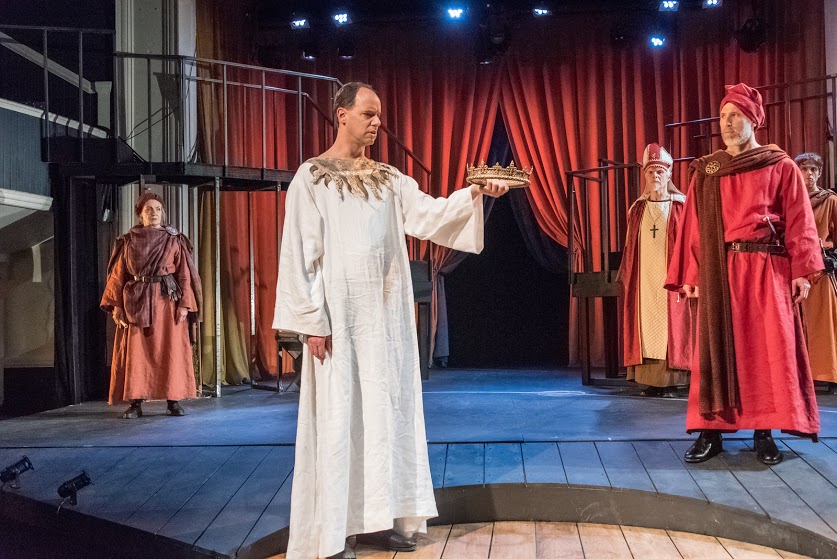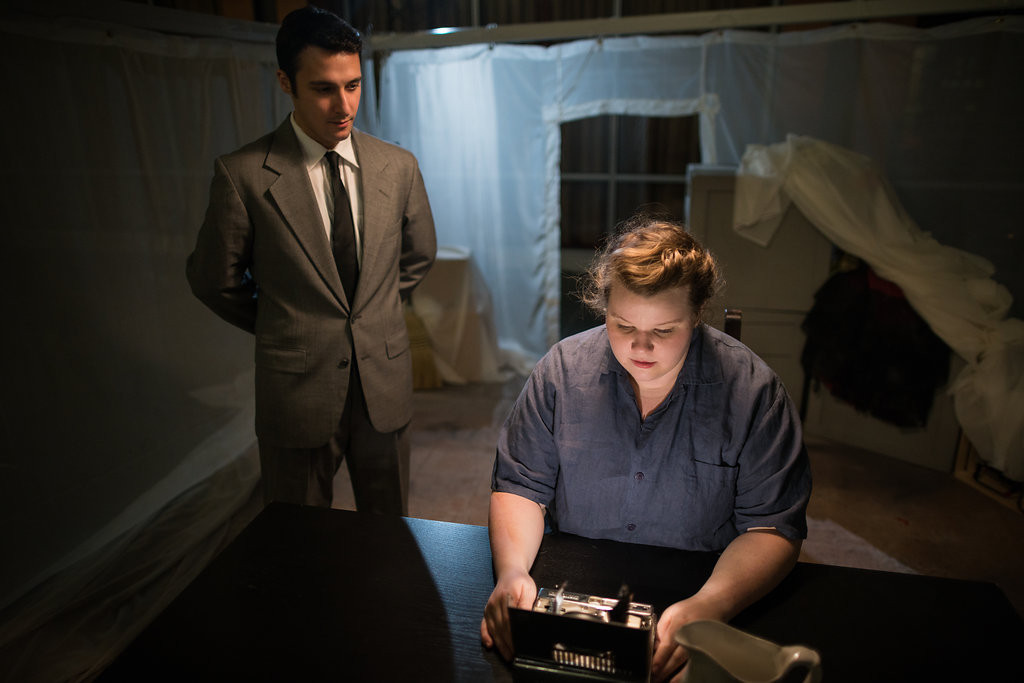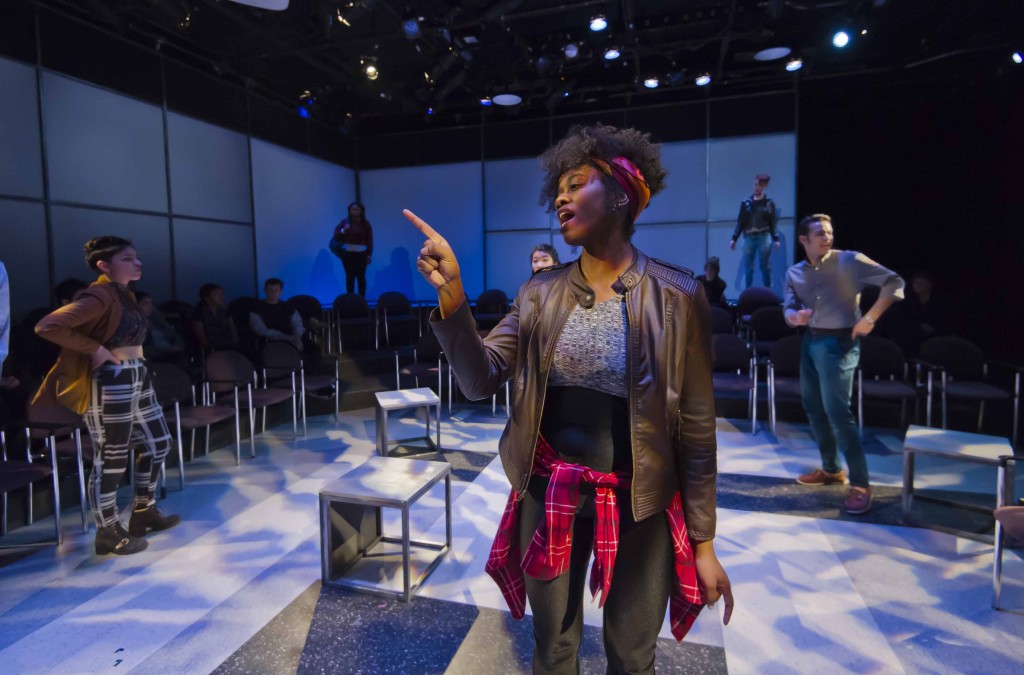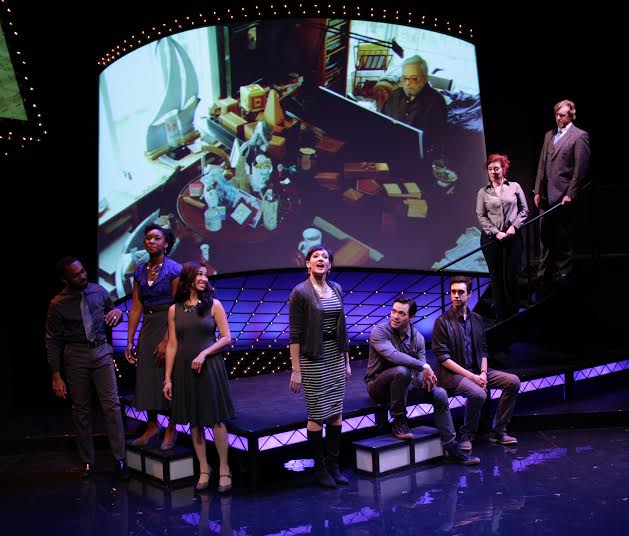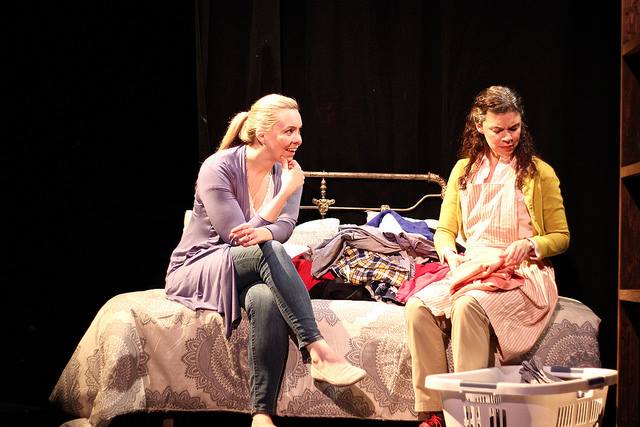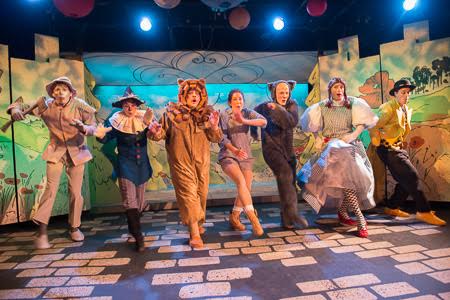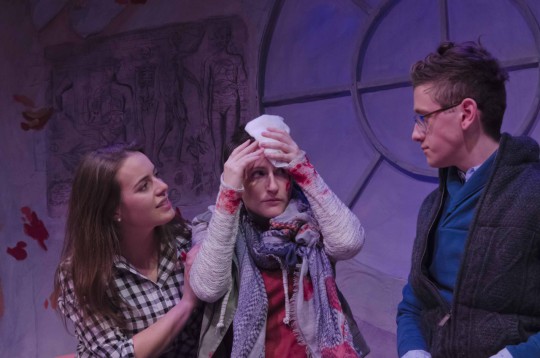
Presented by Boston Playwrights’ Theatre
Written by Melinda Lopez
Directed by Daniela Varon
February 4-28, 2016
Boston Playwright’s Theatre
Boston, MA
BPT on Facebook
Review by Noelani Kamelamela
Trigger warnings: sexual assault and physical violence, sexual situations, adult language, suicide, mental health, activism
(Boston, MA) Institutional support of criminals and criminal behavior either through incompetence or genuine ignorance is common. Although a college campus is the setting of Melinda Lopez’s Back the Night, it could be a stand-in for a fancy secondary school or any urban space. It is both cheaper and simpler in these forums to blame the victim than actually pursue justice.
Em, Sean and Cassie pit themselves against assault on campus after Cassie is injured one night. Em is the pre-med Nancy Drew who likes putting things into proper boxes and Melissa Jesser portrays her with an intensity that simmers just below the surface. Cassie (Amanda Collins), long an ardent anti-violence advocate, is finally putting a lot of her principles to the test. Sean just wants everyone to make it to graduation alive. Along the way, the undergraduates realize that intentions aren’t pure on any side of the issue. The set served as both metaphor and scenery, with decaying infrastructure and dorm furniture offset by autumn leaves and warm lighting.
When I attended, the audience of mostly college aged students and a few older attendees were both amused and engaged. Although the play is a new work, the topics have been stewing in higher education for some time. Local universities such as Boston University responded in the past three years to federal investigations related to sexual harassment under Title IX by leveraging pre-existing resources and coordinating new sets of training for incoming and ongoing students, staff and faculty. For survivors as well as for those who work at or attend a university, the transitions toward justice seem insignificant and much less than what was promised.
To be fair, there are a lot of great sea changes still occurring: a queer character like Sean, played by a bouncy Evan Horwitz, or a non-white character like Em can exist on a campus, which is a sign of progress. Authorities can’t produce those specific, permanent and positive transitions in a vacuum. Rallying and other forms of pressure by non-authorities as well as pushback, then, is more like a dance: there is movement over time, even if there is no easily discernible direction. Also, dances end, and it can take time before a different dance begins.
Lopez gets the internet’s impact on survivor’s rights in many ways: frequently the ability to reach lots of potential activists doesn’t lead to the revolution, especially since the internet reaches not only sympathetic minds, but also perpetrators and victim-blamers who are all too willing to sit on the sidelines and throw stones. At the very least, perpetrators are not given a forum in the play. There’s still lots of meat to chew on. Even when your friends are a mirror or an inspiration, they can still misunderstand and make demands on your sanity that can be almost as terrible as physical trauma. At a fairly short hour and a half, humor between the three friends lightens the frustration, exhaustion and constant questioning. Lopez has captured the voice of modern undergraduates and also provided a snapshot of the strained relationships of students to the adults who are supposed to guide and shield them.
Next on deck for Boston Playwrights’ Theatre is Rhinoceros a co-production with Suffolk University written by Eugene Ionesco at the Modern from February 25-March 13.
